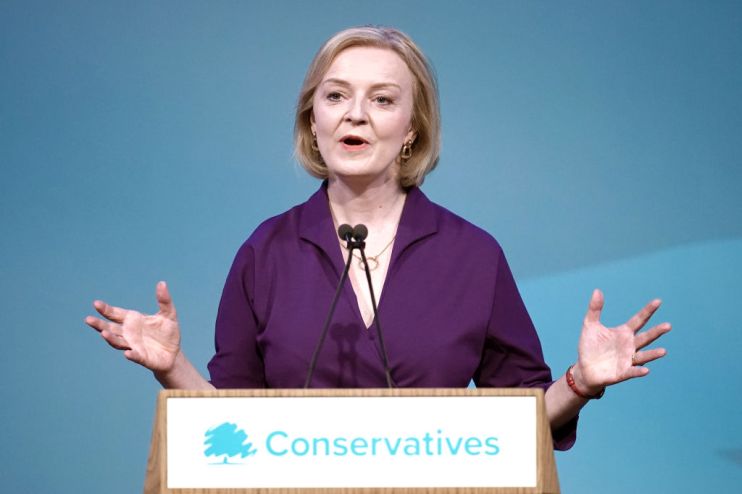If Liz Truss thought winning was hard, governing will be a formidable task

It will not feel like it to Liz Truss, but that was the easy bit. Political campaigns are always brutal, exhausting and emotional affairs; none more so than this summer’s long and fractious Conservative leadership contest. But the challenges of the last few months pale into insignificance against the enormity of what the new prime minister will face behind the black door of Number 10.
The most urgent challenge will be to bring the Conservative Party back together. The summer was the political equivalent of a couple rowing loudly in the back garden in full earshot of their children and neighbours. Everyone knows that Rishi Sunak and Liz Truss disagree profoundly about how to tackle the challenges the country faces, and their supporters have become quite tribal. She must find a way to bring people into the tent and heal the wounds of the last few weeks.
The first opportunity to do this will be when she first addresses the country she now leads. It is an enormous moment for a politician who remains relatively unknown to the electorate. In two focus groups I conducted a week ago in Wales, not one person could recall something that Liz Truss had said or done in her career. This is both an opportunity and a risk. First impressions count in politics: if she gets the tone right, as Theresa May’s “burning injustices” speech did in 2016, she can expect a sizable bounce in the polls. If she doesn’t, she may struggle to recover.
Then she will need to turn to the economic and fiscal crises looming in the forecasts. The Bank of England expects inflation to reach 13 per cent in the final quarter of this year and for the UK to enter into recession at around the same time. In March, when Russia’s invasion of Ukraine was still in its infancy and Russian gas still flowed into the European market, the Office for Budget Responsibility was projecting the largest fall in a financial year since records began in 1956. It will have worsened since. Yields on government gilts have started rising sharply, increasing the costs of borrowing.
The new prime minister’s answer, rightly, would be that these woes further underline the need for stronger growth. UK labour productivity growth has averaged 0.4 per cent per year in the 12 years since the financial crisis, having averaged 2.3 per cent per year in the three decades before it and less than half the average of the 25 richest OECD countries. Productivity gains are therefore vital if we are to generate the living standards we have come to expect and the tax revenues necessary to pay for the NHS.
But her reform agenda will require political capital to deliver and time to generate results, at a time when the former is in short supply and people are hurting now. Supply-side changes will not heat people’s radiators this winter. Regulatory reforms will need to be passed by a House of Lords free to disregard commitments not contained in the 2019 Manifesto. Cutting taxes the poorest do not pay is a lousy way to help them with rising prices, even if it attracts jobs and investment in the long-run.
In other words, pragmatism is required, just as it was for Margaret Thatcher in 1979. It is instructive that while Thatcher is remembered for tax cuts, the early part of her time in power was characterised by tax-raising budgets, notably in Geoffrey Howe’s 1981 Budget that introduced new taxes on petrol, North Sea oil and a windfall tax on bank deposits. The new prime minister, an ardent follower of the Iron Lady, would do well to note her malleability in practice.
Six months ago, many in the Conservative Party were writing Liz Truss off. During a period of extraordinary political volatility, she has shown herself an astute operator and a ruthless campaigner. The risks she took – not resigning from Cabinet and staying close to Boris – have paid off and the discipline of her campaign won through. She will need much more of that resolve if she is to overcome the challenges ahead.